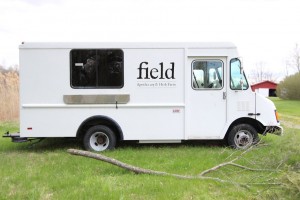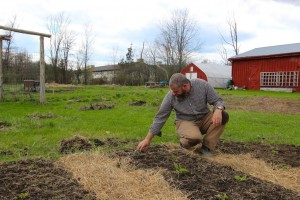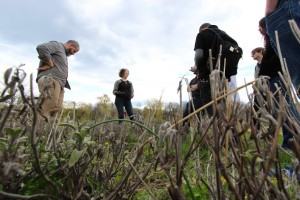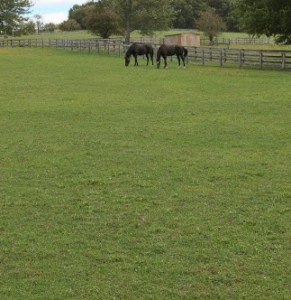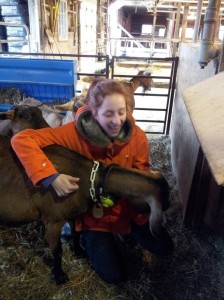Last week, we travelled to Field Apothecary, home to herbalists Dana and Michael Eudy. Michael, born and raised working on a farm in Massachusetts, and Dana, a degreed pundit in herbalism and homeopathy, own a 3-acre property on which they cultivate 65-85 different species of (mostly medicinal) herbs, and manufacture myriad herb-based products. Like its name suggests, Field Apothecary IS just like the magical shop located in Diagon Alley in which Harry, Ron, and Hermione purchase their potions ingredients. But instead of selling their fresh herbs in bulk (because of their inability to compete on such a small scale), Dana and Michael have already brewed the magical tinctures, teas, oils and salves for their customers (who include wizards and muggles alike, but mostly those progressive folk who have already fully updated their kitchen pantries and are looking to find something else to make their bodies the best they can be). On our trip, they stressed the importance of the presence of herbs in the diet, and how homeopathic remedies provide a sophisticated alternative to Western medicine. We learned not only the processes involved in making their products (from planting, to harvesting, to concocting), but also the retail side of their business that is crucial in keeping them economically sustainable.
They walked us through the making of one of their products. One of their first concerns in growing any herb is soil health. Their soil is laden with clay, which retains water and nutrients. Once in the ground, most of their plants require little water, if any at all. However, some of the Mediterranean plants thrive in drier climates, and for this they must create microclimates in the beds. They taught us about the tilling process that they use – road sand mixed in with topsoil – to allow for drainage to avoid overwatering the plants. Something interesting that we did not see elsewhere was that they only placed topsoil where they were planting beds, and let field grasses fill in elsewhere. This ensured that the soil was as undisrupted as possible when planting a new bed. They also explained their process of soil solarization when planting a new bed – covering the desired bed area with black tarp for an entire season to kill off the field grasses – facilitating their removal when planting. They stressed their belief in using no pesticides or any growing aides. Rather, they let nature “do its thing,” and grow plants that complement each other’s nutrient take up so that the soil can remain as nutritious as possible. They picked out a few particular herbs that they used most often – among them, valerian, dandelion, hops, stinging nettles, comfrey, calendula, and tulsi. They taught how to make a tincture as well as a tea, and stressed the importance of harvesting the plants at the right time (when the energy is in the part of the plant you wish to work with) to make the tinctures/teas most potent/effective.
After being educated by Rachel Schneider of Hawthorne Valley, and William Stiff of Goldthread Herbal Apothecary, Dana and Michael acknowledged the potential failure in selling fresh herbs in bulk because of their inability to compete at such a small scale. It was this that led them to rely on creating these value-added products. their first year goal was to, quite literally, “get the plants in the ground.” They opened a CSA, attended farms and fairs ask well as classes with other practitioners, established an online store, and began selling to local healing practitioners as well as online retailers. Soon, by word of mouth and local interest, their business began booming. Rather than having a “pick and choose” system of selling, they currently make small batches of products containing “whatever grows best that season,” and sell these in one-time, seasonal packages, distributed to their CSA members, or any wandering souls. Their packages vary from season to season and year to year, but always with the same goal of improving the body’s resilience based on what it needs most during that time period. In winter, they sell preventative, antiviral and antibiotic medicines, in spring, cleansing, digestive-enhancing products, and in summer, cooling herbs, and skin salves. Within each package, there is an informational guide book on how to use the remedies (for the inexperienced buyer), and when picking up the package, one can buy extra products to add in. Although this is what works for them now, Dana and Michael are working to be more sustainable and efficient by making fewer products in larger quantities for whole sale, with the goal of creating a truly unique Pharm-to-table experience.
Herb yourself and check out their website here!
